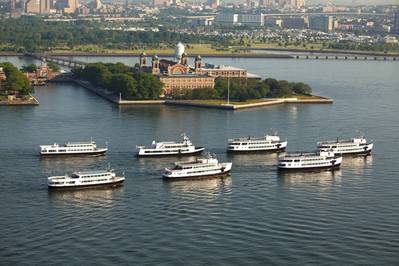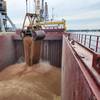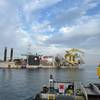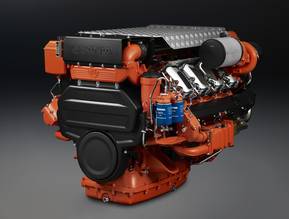MN100: The Hornblower Group
The Hornblower Group is currently in a period of major expansion, now with operations in 111 countries. Hornblower operates a fleet of about 200 vessels in three of those countries, through brands such as NYC Ferry, American Queen Steamboat Company, Alcatraz City Cruises and others. Its vessel operations range from overnight cruise ships, traditional small passenger vessels, high-speed ferries, water taxis, excursion vessels, high-thrill jet boats and even vessels for military contracts.
When the COVID-19 pandemic hit, some of the Hornblower fleet remained in service as “essential operations”, but many vessels were brought to dock and out of service. As the world began to slowly open back up, Hornblower plotted its safe return to vessel operations. Certainly, this is no easy task.
According to Richard Paine, the group’s vice president of HSSQE, one of the main challenges has been rehiring its vessel staff, which led Hornblower down a path toward improving the employee culture and experience. “[Now], as our employees come back and as we hire new employees, there's tracks for development and career paths that can prolong lengthy careers with us in the industry,” Paine said.
Another difficult task has been training new and veteran crews amid pandemic-related shutdowns and restrictions. “We’ve introduced more digital technology-based training, computer-based training, online training. This has really allowed us to expand and be flexible,” Paine said, noting that the digital component is just a piece of the puzzle, existing to compliment hands-on, onboard training. “Using Microsoft Teams, Zoom, online learning management systems allowed us to keep our crew coming back and being able to train on things that might have been done on board a vessel or in a classroom setting, now at their fingertips and a little bit with the comforts at home or in some of the offices that were reopened.”
“Digital technology has become a staple of how we move forward with training, and COVID fast-forwarded that,” Paine continued. “But it will never replace anything that's taken place on board the vessel. Our commitment is still to get a hand on a line, a fire extinguisher, go down to an engine room, do a round, see what working on a vessel is, because the one thing you'll never ever get, no matter how hard they try, from simulation to the newest thing from Amazon, is you never can get your sea legs when you're behind a computer on shore.”
“When people come on board our vessels—be it in Mississippi or from New York or out in California or over in London—they know that they're going to have a crew that's trained, not only in some of the newest technology and having a chance to understand what that means, but at the same point, they didn't lose those traditional mariner skills that are necessary to work on a vessel.”












